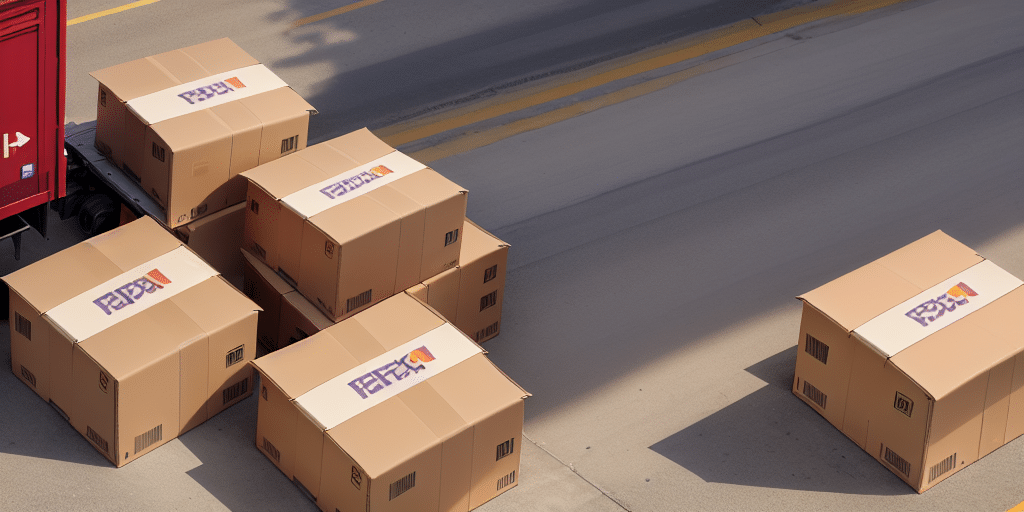Understanding the Importance of the Country of Origin in FedEx Ship Manager
If you are a regular user of FedEx Ship Manager, you are likely familiar with the country of origin field. This field requires you to specify the country where the goods originated. While it might seem like a minor detail, it plays a crucial role in ensuring a smooth and successful shipment. In this article, we will delve into the significance of the country of origin field in FedEx Ship Manager, its impact on customs clearance, duties, and taxes, and best practices for its accurate utilization.
Why the Country of Origin Field Matters
Customs Compliance and Risk Assessment
The country of origin is an essential piece of information for any shipment, regardless of its destination. Customs officials use this information to assess the shipment's risk level and determine if it meets specific regulatory requirements. Accurate country of origin data helps in identifying the correct tariff classification, which can significantly impact the clearance process.
Distinguishing Manufacture from Assembly
It's important to note that the country of origin is not necessarily the same as the country of manufacture. For example, if a product is manufactured in China but assembled in the United States, the country of origin would still be China. Accurately identifying the country of origin helps avoid potential delays or penalties during customs clearance and prevents misunderstandings with customers regarding the product's origin.
The Role of Country of Origin in Customs Clearance
Determining Admissibility and Eligibility
Customs officers rely on the country of origin field to determine a shipment's admissibility and eligibility for clearance. Incomplete or inaccurate information can lead to delays, especially if the product originates from a restricted country. Accurate information ensures that your shipment passes through screening procedures efficiently.
Impact on Documentation
The country of origin must match other shipping documentation, such as the commercial invoice. Ensuring consistency across all documents helps expedite the clearance process and reduces the risk of shipment denial.
Entering Accurate Country of Origin Information
Ensuring Precision
Accuracy is critical when filling out the country of origin field. Mistakes can lead to significant implications, including penalties, fines, and legal action. Providing false information can also harm your reputation as a reliable supplier.
Verification Steps
To ensure accuracy:
- Double-check product documentation, including bills of materials and invoices.
- Communicate with suppliers to confirm the product's origin.
- Stay updated with the latest regulations of the destination country.
Common Mistakes to Avoid
Incorrect Country Selection
One common mistake is entering the country from which goods were received or shipped, rather than the actual country of origin. This can cause significant issues with customs and lead to financial penalties.
Leaving the Field Blank
Failing to fill out the country of origin field can result in shipment delays or denials. Customs officials require this information to assess and clear shipments.
Assuming Manufacturing Equals Origin
The country where a product is manufactured may differ from its country of origin, especially if assembly occurs elsewhere. It's essential to research and accurately determine the true origin of the product.
Impact on Duties and Taxes
Influence of Trade Agreements
The country of origin can significantly affect the duties and taxes imposed on shipments. Countries with free trade agreements or preferential trade agreements with the destination country may benefit from reduced or waived tariffs. Accurate country of origin information ensures you benefit from applicable trade agreements.
Cost Implications
Incorrect country of origin data can lead to overpayment of duties and taxes or, conversely, penalties for underreporting. Ensuring precise information helps manage and predict shipping costs effectively.
Best Practices for Using the Country of Origin Field
Adhering to best practices ensures compliance and smooth shipping operations:
- Provide Accurate Information: Always enter the correct country of origin based on the product's actual origin.
- Double-Check Entries: Review all information before submitting to avoid errors.
- Understand Legal Requirements: Familiarize yourself with the destination country's labeling and documentation regulations.
- Communicate with Suppliers: Verify the origin with your suppliers to ensure consistency.
- Utilize Support Resources: Contact FedEx customer support if you need assistance with country of origin information.
Legal Requirements for Country of Origin
Labeling Regulations
According to U.S. Customs and Border Protection, a label indicating the country of origin must appear on all products' outer packaging. Accurate labeling ensures compliance with international trade laws and avoids legal repercussions.
Documentation Compliance
Regulations require accurate information to be provided to customs officials regarding the goods' origin. Inaccurate or insufficient information can result in non-compliance, leading to fines or shipment seizures.
Relationship Between Product Classification and Country of Origin
The country of origin influences product classification for customs purposes. Proper classification ensures that the correct duties are applied and that the shipment adheres to import regulations. Misclassification or false information can result in penalties and delays.
Risks of Providing False Information
While providing false information might offer short-term shipment advantages, it carries significant risks:
- Legal Penalties: Fines and legal actions against your company.
- Reputation Damage: Loss of customer trust and negative publicity.
- Shipment Delays: Increased scrutiny and potential seizure of goods.
Consequences of Leaving the Country of Origin Field Blank
Leaving the country of origin field empty is not advisable. Customs officials require this information to process shipments. Omitting it can lead to:
- Shipment delays or denials.
- Increased scrutiny and potential fines.
Utilizing FedEx Resources for Accurate Country of Origin Information
FedEx provides several resources to help verify the accuracy of your shipment's country of origin:
- FedEx Country of Origin Information: A comprehensive database to aid in determining the correct origin.
- FedEx Customer Support: Access support for any questions or assistance needed.
- U.S. Customs and Border Protection: Official resources on customs regulations.
Conclusion
The country of origin field in FedEx Ship Manager is a critical component of the shipping process. Accurate information ensures compliance with customs regulations, facilitates smooth clearance, and helps manage duties and taxes effectively. By following best practices, understanding legal requirements, and utilizing available resources, you can avoid common pitfalls and ensure your shipments arrive at their destination without unnecessary delays or complications.






















